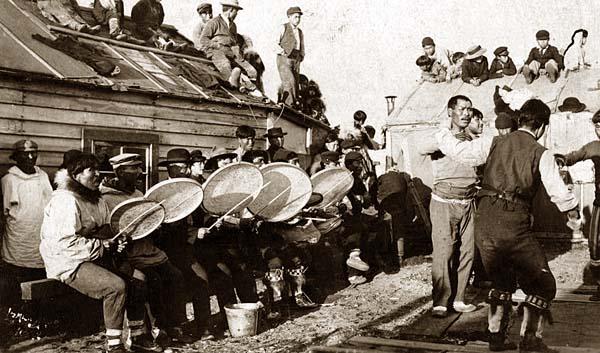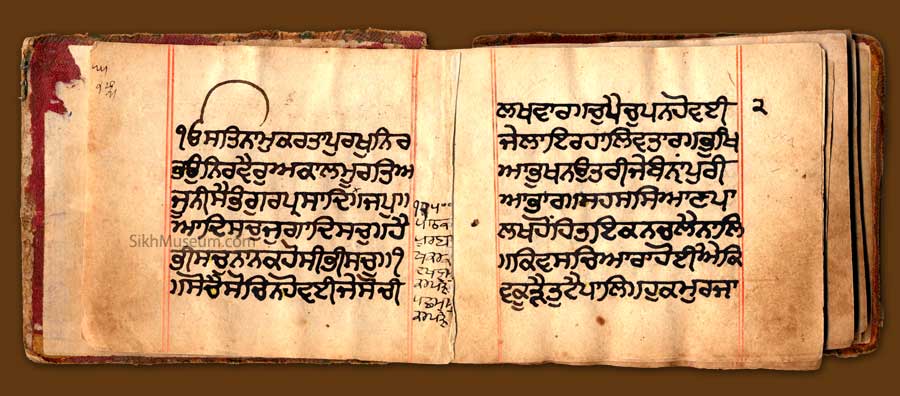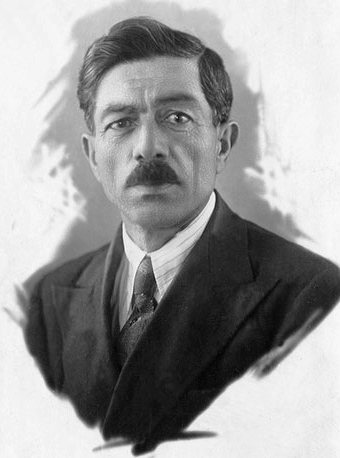|
Ashiqs Of Azerbaijan
The art of Azerbaijani Ashiqs combines poetry, storytelling, dance, and vocal and instrumental music into traditional performance art. This art is one of the symbols of Azerbaijani culture and considered an emblem of national identity and the guardian of Azerbaijani language, literature and music. Characterized by the accompaniment of the kopuz, a stringed musical instrument, the classical repertoire of Azerbaijani Ashiqs includes 200 songs, 150 literary-musical compositions known as dastans, nearly 2,000 poems, and numerous stories. Since 2009 the art of Azerbaijani Ashiqs has been inscribed on the Representative List of the Intangible Cultural Heritage of Humanity. Etymology In today's encyclopedic dictionaries the word ''Ashiq'', which means "one who is in love", is derived from the Arabic and Persian. Some encyclopedias define Ashiq as a folk singer-poet of Caucasus and neighboring nations. In addition to songs of his own, in repertory, Ashiq includes epic tales and folk ... [...More Info...] [...Related Items...] OR: [Wikipedia] [Google] [Baidu] |
Folk Festival
A folk festival celebrates traditional folk crafts and folk music. This list includes folk festivals worldwide, except those with only a partial focus on folk music or arts. Folk festivals may also feature folk dance or ethnic foods. Handicrafting has long been exhibited at such events and festival-like gatherings, as it has its roots in the rural crafts. Like folk art, handicraft output often has cultural, political, and/or religious significance. Folk art encompasses art produced from an indigenous culture or by peasants or other laboring tradespeople. In contrast to fine art, folk art is primarily utilitarian and decorative rather than purely aesthetic, and is often sold at festivals by tradespeople or practicing amateurs.West, Shearer (general editor), ''The Bullfinch Guide to Art History'', page 440, Bloomsbury Publishing Plc, United Kingdom, 1996. As at folk festivals, such art and handicraft may also appear at historical reenactments and events such as Renaissance f ... [...More Info...] [...Related Items...] OR: [Wikipedia] [Google] [Baidu] |
Literature Of Azerbaijan
Azerbaijani literature ( az, Azərbaycan ədəbiyyatı) is written in Azerbaijani, a Turkic language, which is the official state language of the Republic of Azerbaijan, where the North Azerbaijani variety is spoken. It is also natively spoken in Iran, where the South Azerbaijani variety is used, and is particularly spoken in the northwestern historic region of Azerbaijan. Azerbaijani is also spoken natively in Russia (especially Dagestan), Georgia and Turkey. While the majority of Azerbaijani people live in Iran, modern Azerbaijani literature is overwhelmingly produced in the Republic of Azerbaijan, where the language has official status. Three scripts are used for writing the language: Azerbaijani Latin script in the Republic of Azerbaijan, Arabic script in Iran and Cyrillic script formerly used in Soviet Azerbaijan. The earliest development of Azerbaijani literature is closely associated with Anatolian Turkish, written in Perso-Arabic script. Examples of its detachment date ... [...More Info...] [...Related Items...] OR: [Wikipedia] [Google] [Baidu] |
Ashig Alasgar
Ashig Alasgar ( az, Aşıq Ələsgər; 1821 – 7 March 1926) was an Azerbaijani mystic troubadour (Ashik An ashik ( az, aşıq, ; tr, âşık; fa, عاشیق) or ashugh ( hy, աշուղ; ka, აშუღი) is traditionally a singer-poet and bard who accompanies his song—be it a dastan (traditional epic story, also known as '' hikay ...) and highly regarded poet of Azerbaijani folk songs. He was born in the village of Aghkilsa in the Goycha District of the Erivan Khanate. Early life Ashig Alasgar was born in 1821 in the village of Aghkilse in the Goycha region. His father Almammad worked as a carpenter. At the same time, he was also known as with his intelligence in literature. Almammad was fairly good at poetry genres such as Gerayly, Qoshma and Bayati. It is predicted that Almammad had a huge impact on Ashiq Alasgar. Ashiq Alasgar grew up in a big and poor family with three brothers and two sisters. He was the eldest son of the family. Due to the finan ... [...More Info...] [...Related Items...] OR: [Wikipedia] [Google] [Baidu] |
Gurbani
Gurbani ( pa, ਗੁਰਬਾਣੀ) is a Sikh term, very commonly used by Sikhs to refer to various compositions by the Sikh Gurus and other writers of Guru Granth Sahib. In general, hymns in the central text of the Sikhs, the Guru Granth Sahib, are called ''Gurbani''. Among Amritdhari Sikhs, a few texts from Dasam Granth which are read as Nitnem, like ''Tav-Prasad Savaiye'' and ''Chaupai'', are also considered ''Gurbani''. In Adi Granth, Gurbani is a sound which comes directly from the Supreme and the text is a written form of the same in worldly language and scripts. It is also called ''Guru´s Bani''. Gurbani are explanations of qualities of the Primal Lord and Soul which a Sikh should comprehend and with which they can attain the supreme state. Sikh historical writings, unauthentic writings or apocryphal compositions written under the names of Sikh Gurus and other writings by Sikhs are not considered Gurbani and are referred to as ''Kachi Bani'' (ਕੱਚੀ ਬਾਣ� ... [...More Info...] [...Related Items...] OR: [Wikipedia] [Google] [Baidu] |
Ustad
Ustād or ostād (abbreviated as Ust., Ut. or Ud.; from Persian ) is an honorific title used in West Asia, North Africa, South Asia and Southeast Asia. It is used in various languages such as Persian, , Azerbaijani, Urdu, Hindi, Bengali, Marathi, Dhivehi, Punjabi, Pashto, Turkish, Indonesian, Malay and Kurdish. Etymology The Persian word () is from Middle Persian (, 'master, craftsman'). Usage The title precedes the name and was historically usually used for well-regarded teachers and artists. It can be used for any sort of master of an art or occupation; for example, an acknowledged master motorcycle mechanic would be addressed as ''ustad''. The term is also used by an apprentice (''shagird'') for their teacher. In Persian and in the Arabic-speaking world, it also refers to a university professor. Ustad is only used for qualified Islamic scholars in Brunei, Indonesia, Malaysia, the Philippines, Singapore, Southern Thailand where it is a direct equivalent of ter ... [...More Info...] [...Related Items...] OR: [Wikipedia] [Google] [Baidu] |
Azerbaijan
Azerbaijan (, ; az, Azərbaycan ), officially the Republic of Azerbaijan, , also sometimes officially called the Azerbaijan Republic is a transcontinental country located at the boundary of Eastern Europe and Western Asia. It is a part of the South Caucasus region and is bounded by the Caspian Sea to the east, Russia (Republic of Dagestan) to the north, Georgia to the northwest, Armenia and Turkey to the west, and Iran to the south. Baku is the capital and largest city. The Azerbaijan Democratic Republic proclaimed its independence from the Transcaucasian Democratic Federative Republic in 1918 and became the first secular democratic Muslim-majority state. In 1920, the country was incorporated into the Soviet Union as the Azerbaijan SSR. The modern Republic of Azerbaijan proclaimed its independence on 30 August 1991, shortly before the dissolution of the Soviet Union in the same year. In September 1991, the ethnic Armenian majority of the Nagorno-Karabakh region formed ... [...More Info...] [...Related Items...] OR: [Wikipedia] [Google] [Baidu] |
Azerbaijani Ashiq At Eurovision 2012
Azerbaijani may refer to: * Something of, or related to Azerbaijan * Azerbaijanis * Azerbaijani language See also * Azerbaijan (other) * Azeri (other) * Azerbaijani cuisine * Culture of Azerbaijan The culture of Azerbaijan ( az, Azərbaycan mədəniyyəti) combines a diverse and heterogeneous set of elements which developed under the influence of Turkic, Iranic and Caucasian cultures. The country has a unique cuisine, literature, folk ar ... * {{Disambig Language and nationality disambiguation pages ... [...More Info...] [...Related Items...] OR: [Wikipedia] [Google] [Baidu] |
Armenian SSR
The Armenian Soviet Socialist Republic,; russian: Армянская Советская Социалистическая Республика, translit=Armyanskaya Sovetskaya Sotsialisticheskaya Respublika) also commonly referred to as Soviet Armenia or Armenia, ; rus, Армения, r=Armeniya, p=ɐrˈmʲenʲɪjə) was one of the constituent republics of the Soviet Union in December 1922 located in the South Caucasus region of Eurasia. It was established in December 1920, when the Soviets took over control of the short-lived First Republic of Armenia, and lasted until 1991. Historians sometimes refer to it as the Second Republic of Armenia, following the demise of the First Republic. As part of the Soviet Union, the Armenian SSR transformed from a largely agricultural hinterland to an important industrial production center, while its population almost quadrupled from around 880,000 in 1926 to 3.3 million in 1989 due to natural growth and large-scale influx of Armenian gen ... [...More Info...] [...Related Items...] OR: [Wikipedia] [Google] [Baidu] |
Georgian SSR
The Georgian Soviet Socialist Republic (Georgian SSR; ka, საქართველოს საბჭოთა სოციალისტური რესპუბლიკა, tr; russian: Грузинская Советская Социалистическая Республика, Gruzinskaya Sovetskaya Sotsialisticheskaya Respublika) was one of the republics of the Soviet Union from its second occupation (by Russia) in 1921 to its independence in 1991. Coterminous with the present-day republic of Georgia, it was based on the traditional territory of Georgia, which had existed as a series of independent states in the Caucasus prior to the first occupation of annexation in the course of the 19th century. The Georgian SSR was formed in 1921 and subsequently incorporated in the Soviet Union in 1922. Until 1936 it was a part of the Transcaucasian Socialist Federative Soviet Republic, which existed as a union republic within the USSR. From November 18, 1989, the Georgian SS ... [...More Info...] [...Related Items...] OR: [Wikipedia] [Google] [Baidu] |
Azerbaijan SSR
Azerbaijan ( az, Азәрбајҹан, Azərbaycan, italics=no), officially the Azerbaijan Soviet Socialist Republic (Azerbaijan SSR; az, Азәрбајҹан Совет Сосиалист Республикасы, Azərbaycan Sovet Sosialist Respublikası, italics=no, links=no; russian: Азербайджанская Советская Социалистическая Республика �зССРAzerbaydzhanskaya Sovetskaya Sotsialisticheskaya Respublika zSSR}), also referred to as Soviet Azerbaijan, was one of the constituent republics of the Soviet Union between 1922 and 1991. Created on 28 April 1920 when the Russian Soviet Federative Socialist Republic brought pro-Soviet figures to power in the region, the first two years of the Azerbaijani SSR were as an independent country until incorporation into the Transcausasian SFSR, along with the Armenian SSR and the Georgian SSR. In December 1922, the Transcaucasian SFSR became part of the newly established Soviet Union. The ... [...More Info...] [...Related Items...] OR: [Wikipedia] [Google] [Baidu] |
Meykhana
Meykhana ( az, Meyxana) is a distinctive Azerbaijani literary and folk rap tradition, consisting of an unaccompanied song performed by one or more people improvising on a particular subject. Meykhana is distinct from spoken word poetry in that it is performed in time to a beat. Meykhana is often compared to hip hop music, also known as ''national rap'' among Azerbaijani residents, as it also includes performers that is spoken lyrically, in rhyme and verse, generally to an instrumental or synthesized beat. Performers also incorporate synthesizers, drum machines, and live bands. Meykhana masters may write, memorize, or improvise their lyrics and perform their works a cappella or to a beat. Etymology The name of this genre comes from the traditional Persian ''meykhane'' (tavern, pub), which itself originated from the Persian word ''mey'' (wine) and ''khane'' (house). The professional performers of meykhana are known as the ''Söz Ustadı'' (Word Masters) in Azerbaijani, also cal ... [...More Info...] [...Related Items...] OR: [Wikipedia] [Google] [Baidu] |





